In the media is a weekly round-up of features written by, about or containing female writers that have appeared during the previous week and I think are insightful, interesting and/or thought provoking. Linking to them is not necessarily a sign that I agree with everything that’s said but it’s definitely an indication that they’ve made me think. I’m using the term ‘media’ to include social media, so links to blog posts as well as traditional media are likely and the categories used are a guide, not definitives.

It’s Mother’s Day in 80 countries around the world today. Not surprisingly, there has been a whole range of articles, from a whole range of view points, about mothers and motherhood this week. The Hairpin ran a series including ‘Mommy Queerest‘ by Sarah Liss; ‘Thoroughly Modern Murdering Mothers; or, Women Who Kill for Their Children‘ by Meredith Haggerty; ‘A Joke, A Story‘ by Naomi Skwarna; ‘Going for the Burn: Revisiting Jane Fonda’s Workouts‘ by Alison Hamm’ ‘Mothers and Moms‘ by Haley Mlotek, and Randi Bergman, ‘The Weirdest Beauty Tips I Learned From My Mom‘.
Tameka Cage-Conley wrote, ‘Motherhood, Art, And Police Brutality‘ on VSB; Amy Shouse wrote ‘My mom never wanted kids‘ on Salon; Anne Enright wrote, ‘When Mother Leaves the Room‘ in The New York Times; Cheryl Strayed wrote, ‘The ‘Painful Personal Toll Lung Cancer Has Taken on My Life’‘ on The Huffington Post; Monica Hessler, ‘The long drive to end a pregnancy‘ in The Washington Post; Mary HK Choi, ‘The Dicks Of Our Lives‘ on Buzzfeed; Mary Elizabeth Williams, ‘Sorry about Mother’s Day, my childfree girlfriends: Moms aren’t any more special (or unselfish) than you‘ on Salon; Edwidge Danticat, ‘A Prayer Before Dying‘ on Literary Hub; Brogan Driscoll, ‘I Refuse to Celebrate ‘Dad Bod’, Until We Appreciate the ‘Mum Bod’ Too‘ on the Huffington Post

Catherine Bennett wrote in The Guardian, ‘It’s dehumanising to be ‘an oven’ for someone else’s baby‘; Jessica Roake wrote, ‘An Ode to the “Mom’s Night Out”‘ on Slate; Rebecca Mead wrote, ‘A Woman’s Place Is on the Internet‘ in The New Yorker; Sophie Heawood wrote, ‘I’ve read all the advice, but I still don’t know – am I raising a serial killer?‘ in The Guardian; Laila K wrote, ‘Up with the kids‘ in The Pool; Dahlia Lithwick, ‘“Bye-Bye, Normal Mommy”‘ on Slate; Christie Watson, ‘The Joy and Pain of Trans-Racial Adoption‘ on Literary Hub; Meagan O’Connell, ‘It’s My First Mother’s Day As a Mom. Now What?‘ in The Cut; Kate Spencer, ‘How I Finally Let Go Of Grief For My Dead Mom‘ on Buzzfeed; Domenica Ruta, ‘Can Having a Child Help Me Get Over My Abusive Mom?‘ in The Cut.
Danah Boyd, ‘I Miss Not Being Scared‘ on Medium; Melissa Duclos, ‘To the Doctor Who Reported Me to Child Protective Services‘ on The Offing; Christopher Frizzelle, ‘The Day Virginia Woolf Brought Her Mom Back to Life‘ on Literary Hub; Lauren Laverne, ‘“Mum” as a diss‘ in The Pool.
And if you’d rather read a book instead, Literary Hub suggests, ‘Five Intense Books for Mother’s Day‘ and the Huffington Post recommends, ‘Mother’s Day Reads: Eight Great Mother Characters in Literature‘.

Photograph by Idil Sukan
In the UK, there was a general election. 3AM Magazine ran a whole series of reactions including, Lauren Elkin, ‘an open letter to mark-francis vandelli‘; Juliet Jacques, ‘london – 2015‘; Eley Williams, ‘rosette manufacture: a catalogue and spotters’ guide‘, and Rachel Genn, ‘you wouldn’t like me when i’m disappointed‘. Other reactions included: Laurie Penny, ‘Don’t give in: an angry population is hard to govern; a depressed population is easy‘ in the New Statesman; Joan Smith, ‘Almost a third of all MPs are now women – a milestone has been reached‘ in The Guardian; Janice Turner, ‘Why the north is in revolt against Labour‘ in The Times; Beluah Maud Devaney, ‘Unfriending Tories on Facebook Is Not the Answer‘ on the Huffington Post
And there were a few pieces written prior to the result that I still think are worth reading: Sam Baker, ‘When voting doesn’t make you feel good‘ in The Pool; Suzanne Moore, ‘By Friday we’ll be reduced to bystanders at a revoltingly macho political stare-off‘ in The Guardian; Concepta Cassar, ‘Food For Thought: Hazlitt, Malthus and the Tragedy of Food Banks‘ in Litro; Katy Guest, ‘Sandi Toksvig’s Women’s Equality Party is a movement for which time has come‘ in The Independent; Salena Godden, ‘Colour-blind: What colour are you?‘ on her blog, and Isabel Rogers’ poem ‘The truth about political correctness‘ on her blog.

I promised myself I wouldn’t mention it but there have been a few good pieces written about the birth of THAT baby: Sian Norris, ‘She’s not like other girls…‘ on Sian and Crooked Rib; Heather Havrilesky, ‘Royal Baby Girl Fated to Lead International Mob of Fake Princesses?‘ in The Cut, and Viv Groskop, ‘She’s a tiny baby, not a Kardashian‘ in The Pool.
Congratulations to Gill Lewis who won the Little Rebels children’s book award with Scarlet Ibis this week; to Emily St. John Mandel who won the Authur C Clarke award, and to Alice Notley who won the Ruth Lilly Poetry Foundation Prize. A gender balanced shortlist was announced for the RSL Ondaatje Prize 2015 and a female dominated one for the Branford Boase Award 2015. The ALS Longlist and NSW Premier’s Literary Awards Shortlists were also announced.
The best of the rest:

On or about books/writers/language:
- Katy Derbyshire, some stats about Women in Translation on Women in Translation
- Voula Grand, ‘on The next Gone Girl (The spells stories cast – or don’t)’ on Isabel Costello’s Literary Sofa
- Lois Leveen, ‘All the Years Ahead: On Committing Literary Suicide‘ on The Millions
- Joanna Biggs, ‘My hero: Shulamith Firestone‘ in The Guardian
- Various, ‘‘Get your head out of that book!’ – the children’s stories that inspired leading writers‘ in The Guardian
- Anne Enright, ‘A return to the western shore: on yielding to the Irish tradition‘ in The Guardian]
- Jill Kronstadt, ‘A God in Ruins: Kate Atkinson After Kate Atkinson‘ on Bloom
- Diane Watt, ‘Rethinking the Medieval Canon‘ on The University of Surrey: Women’s Literary Culture and the Medieval Canon
- Jeanette Winterson, ‘Ruth Rendell: memories of a friend who stood by me‘ in The Guardian
- Alison Flood, ‘Archive find shows medieval mystic Margery Kempe’s autobiography ‘doesn’t lie’‘ in The Guardian
- Jordan Kinsley, ‘Rewriting Fairy Tales‘ on Rewriting Mary Sue
- ‘Like Madame Bovary blasted by lightning’: By Grand Central Station I Sat Down And Wept on the 4th Estate Blog
- Jill Lepore, ‘Looking at Female Superheroes with 10-year-old Boys‘ in The New Yorker
- Vanessa Lafaye, ‘The Breath of Creativity‘ on Random Things Through My Letterbox
- Josephine Livingstone, ‘Ban Men from Literary Readings‘ in the Gawker Review of Books
- Aminatta Forna, ‘Where Are the West’s Political Novelists?‘ on Literary Hub
- Emma Claire Sweeney, ‘Elizabeth Bishop and Marianne Moore‘ on Something Rhymed
- Kirsty Logan, ‘Made-up worlds (and a worldie maid)‘ on Bookanista
- Robert McCrum, ‘The 100 best novels: No 85 – The Bell Jar by Sylvia Plath (1966)‘ in The Guardian
- Lori Lansens, ‘Living with authoritis‘ on Bookanista
- Lizzy Kremer, ‘Living Life Through Metaphor: the Necessity of Fiction‘ on Publishing for Humans
- Sarah Seltzer, ‘Why We Should All Be Spinsters: Writers Take on a New Feminine Mystique‘ on Flavorwire
- Jason McBride, ‘Losing Control of the Language‘ (on Kathy Acker) on Slate
- Marsha Lederman, ‘Breaking up the Canadian theatre boys’ club: New plays fight the gender gap with all-female casts‘ in The Globe and The Mail
- Caroline Criado-Perez, ‘We deserve to know about the women who show us what can be done and how to do it’ in The Observer
- Jo Walton, ‘A Great Castle Made of Sea: Why Hasn’t Susanna Clarke’s Jonathan Strange & Mr Norrell Been More Influential?‘ on Tor
- M. J. Carter, ‘on Edgar Allan Poe‘ on Raven Crime Reads
- Marie Phillips, ‘In defence of Amy March‘ in The Pool
- Katherine May, ‘Happily Never After‘ on Aeon
- Jamie Fisher, ‘High Style and Desperate Love: On the Life and Work of Eileen Chang‘ on The Millions
- Mallory Ortberg, ‘Dirtbag Tess Of The D’Urbervilles‘ in The Toast
- Leah Ferguson, ‘It’s Like Having An Alter Ego, But Harder‘ on Women Writers, Women’s Books
- Alex Clark, ‘25 years of the Encore award: a cure for second-novel syndrome‘ in The Observer
- Kate Taylor, ‘We need to speak up about sexism in the arts‘ in The Globe and The Mail

Personal essays/memoir:
- Lucy Grealy, ‘Autobiography of a Body‘ on Nerve
- Masooma Hussain, ‘Symmetry in Our Misshapenness‘ in The Butter
- Sharisse T. Smith, ‘Hair Trajectory‘ in The Los Angeles Review
- Jenny Zhang, ‘Far Away from Me‘ in Rookie
- Tovah Burnstein, ‘A Woman Like Water‘ in The Butter
- Clarissa Wei, ‘Why I Will Always Love My Ex-Boyfriends‘ on XOJane
- Suzanne Joinson, ‘Dirty Talk and Dostoyevsky on the Night Shift‘ in The New York Times
- Leah Reich, ‘The Tin Woodman‘ on Medium
- Vickie Vertiz, ‘Kissing‘ in The Offing
- Anupa Mistry, ‘That Home Feeling‘ on Hazlitt
- Sali Hughes, ‘Proud to be a prude‘ in The Pool
- Melissa Hughes, ‘Starting Over at 35‘ on Medium
- Jenny Diski, ‘In Gratitude‘ in the London Review of Books (£)
- Jennifer S. Cheng, ‘Hikikomori: Salt Constellations‘ on LIterary Hub
- Mary J. Breen, ‘Childhood: Dollhouses, Solitude, and the Souls in Purgatory‘ in The Toast
- Amelia Gray, ‘Tsujita LA Artisan Noodle‘ on The Morning News
- Sonya Lee, ‘Daisy Duke and the Manosphere‘ on The Rumpus
- Mackenzie Mays, ‘Your Dad is Still Your Dad: On Family and Alcoholism‘ in The Toast
- Thea Goodman, ‘The Elevator Ride‘ on The Rumpus
- Abhilasha Kumar, ‘A Capital Affair‘ in Kindle
- Steph, ‘In celebration of discovering feminism, Caitlin Moran, and chips with curry sauce‘ on Reimagining My Reality
- Leesa Cross-Smith, ‘Kentucky Decadent & Derby Depraved‘ on Real Pants
- Sarah Lepiciger, ‘How do you cure homesickness?‘ in The Guardian
- Sarah Franklin, ‘How could I not guess that my son would love football?‘ in The Guardian

Feminism:
- Ann Friedman, ‘Let’s do this. Let’s talk about periods‘ in The Pool
- Rebecca Carroll, ‘The Police Hit Black Women With Both Racism and Sexism At Once‘ in The Guardian
- Guilaine Kinouani, ‘The language of distress: Black women’s mental health and invisibility‘ on Media Diversified
- Juniper Fitzgerald, ‘The Price of Knowledge: Discrimination Against Sex Workers In Academia‘ on Tits and Sass
- Katy Waldman, ‘Bitch, I’ll Tell You Why This Sentence Construction Is So Effective‘ on Slate
- Meg Zulch, ‘Why Calling Someone A “Tomboy” Is Hugely Problematic And Reifies Unnecessary Gender Roles‘ on Bustle
- Sayan Bhattacharya, ‘A Room of Her Own‘ in Kindle
- Koli Mitra, ‘Fault(y) Lines‘ in Kindle
- Deepa Bhasthi, ‘The Pakoda-Frying Feminist‘ in Kindle
- Tracy Moore, ‘The Best Time I Left a Used Tampon in a Dude’s Shower‘ in Jezebel
- Maxine Builder, ‘How The Lack Of Asian Models In The Fashion Industry Created A Divide Between My Racial Identity And My Body‘ on Bustle
- Megan Nolan, ‘Why is it so hard to get away from the powerful-man-loves-sweet-young-woman dynamic?‘ in The Pool

Society and Politics:
- Eva Wiseman, ‘Where have all the ghosts gone?‘ in The Observer
- Sarah Maslin, ‘The Price of Nice Nails‘ in The New York Times
- Kate Fagan, ‘Split Image‘ on ESPN
- Sarah Miller, ‘Death to the Maxi Dress: A Manifesto‘ on Jezebel
- Jessica Pressler, ‘Bullsh*t. The art of the sell, a half century after Mad Men‘ in New York Magazine
- Kera Bolonik, ‘America’s ugly whitesplaining epidemic: Baltimore, Freddie Gray and the media’s utter cluelessness‘ on Salon
- Aamina Shakur, ‘Who Are the Rightful Owners of Artifacts of Oppression?‘ on Hyperallergic
- Elisa Veini, ‘Doing Nothing Is an Art‘ in Berfrois
- Megan Garber, ‘Aisle Be Seeing You: The Rise of the Totally Transparent Bridal Gown‘ in The Atlantic
- Viv Groskop, ‘You’re never going to retire‘ in The Pool
- Keiko Lane, ‘Intersections, on the Anniversary of the Rodney King Rebellion‘ on The Rumpus
- Jamilah King, ‘#blacklivesmatter: How three friends turned a spontaneous Facebook post into a global phenomenon‘ in The California Sunday Magazine
- Noor Alnaqeeb, ‘My Middle East: ‘We should go out there and represent ourselves’‘ on Media Diversified
- Leslie Berlin, ‘Silicon Valley Then and Now: To Invent the Future, You Must Understand the Past‘ on Medium
- Stacia L. Brown, ‘Looking While Black‘ in The New Republic

The interviews:

If you want some fiction to read:
If you want some poetry to read:
If you want some non-fiction to read:

Photograph by Cybele Knowles
The lists:












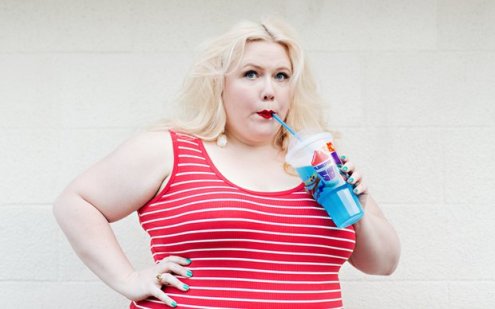
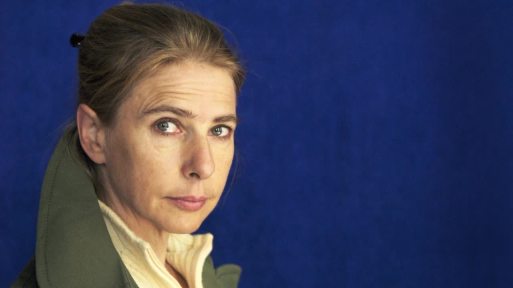















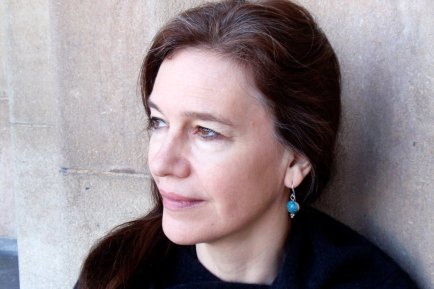














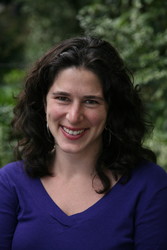

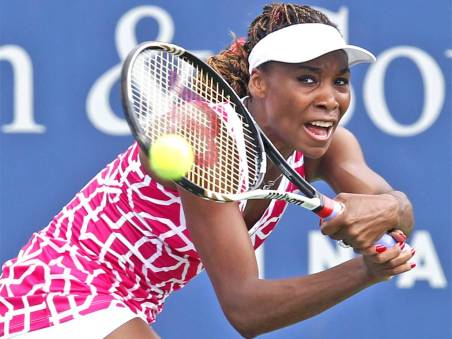





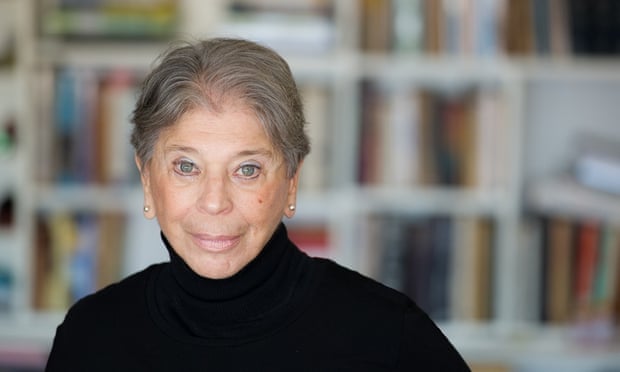


















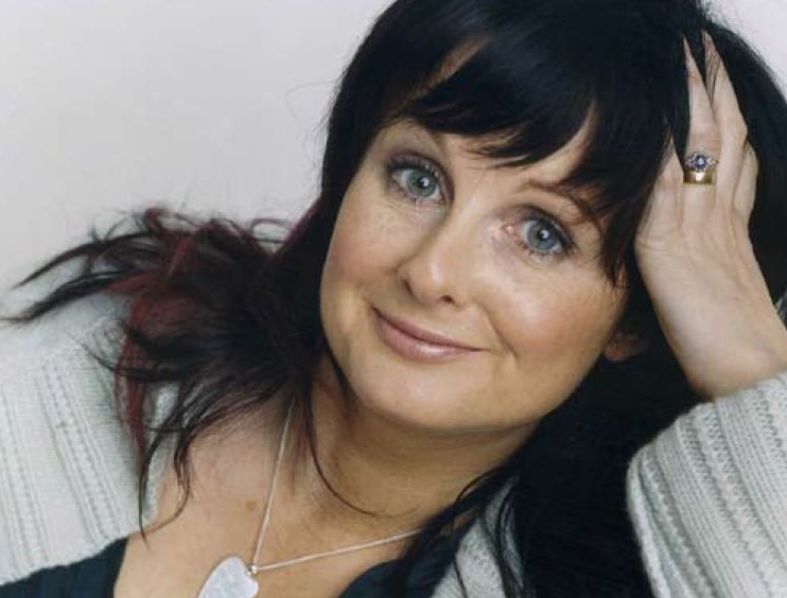

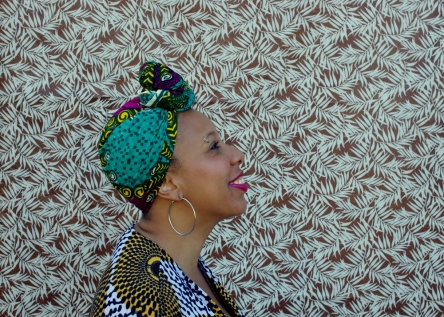 Photograph by Kwesi Abbensetts
Photograph by Kwesi Abbensetts










